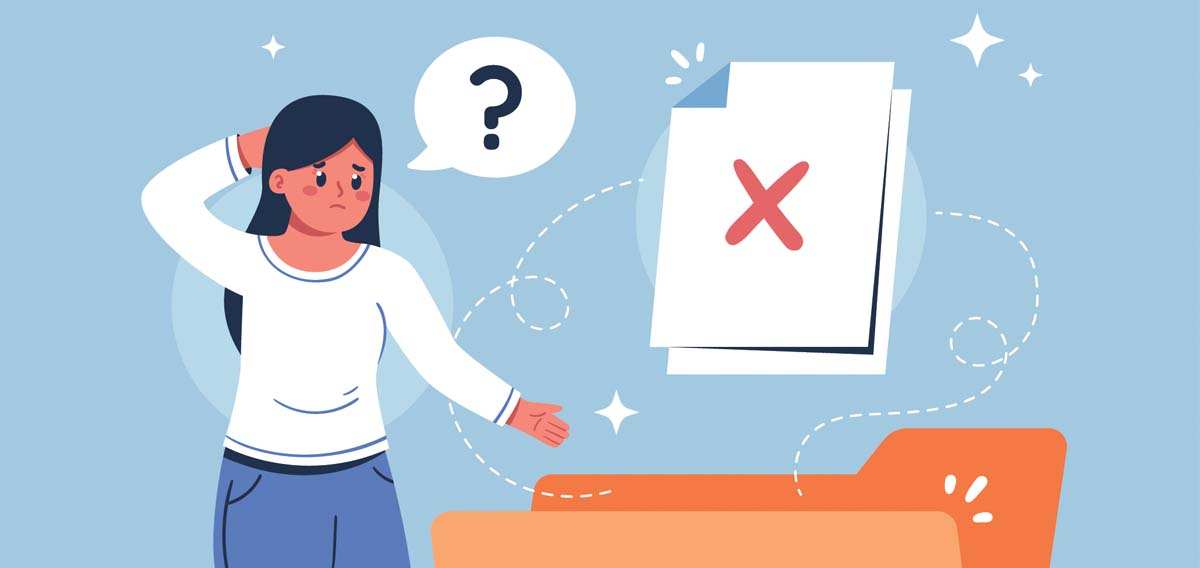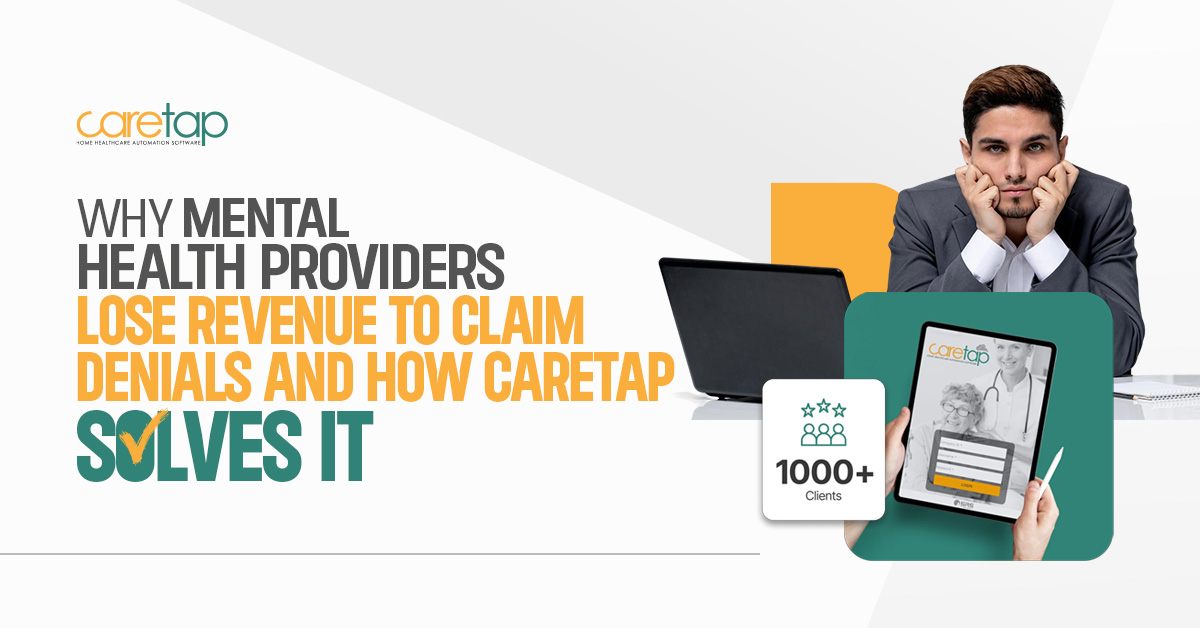Introduction: The Silent Revenue Killer in Mental Health Practices
If you’re a mental health provider, you already know the emotional and administrative load that comes with your work. What you might not realize is just how much revenue quietly slips away not because you aren’t delivering excellent care, but because your claims aren’t being paid.
Every year, thousands of mental health providers lose up to 10–15% of their revenue due to denied or delayed claims.
That’s not a small inconvenience. That’s tens of thousands of dollars that never make it back to your practice money you’ve already worked hard to earn.
Claim denials do more than impact the bottom line. They drain morale, overwhelm administrative teams, and create a cycle of rework that steals time from actual patient care. If you’ve ever felt the frustration of waiting months for reimbursement or resubmitting the same claim three times you’re not alone.
This blog will uncover the root causes of claim denials in mental health and behavioral health practices and show you how Caretap’s all-in-one system helps eliminate them once and for all.
Understanding the Claim Denial Problem in Mental Health
Before we talk solutions, it’s important to understand the challenge.
What Exactly Is a Claim Denial?
A claim denial occurs when a payer reviews the claim and refuses payment due to missing information, documentation issues, coding errors, eligibility problems, or non-compliance with payer guidelines.
This is not the same as a claim rejection, which happens when the claim doesn’t even make it into the system because of mistakes in formatting or submission.
The key difference?
- Rejections are returned quickly and can often be fixed immediately.
- Denials go through the full submission process, get reviewed, and only then are flagged as invalid, often weeks later.
For mental health practices operating with thin margins, those delays are financially devastating.
Why Behavioral Health Billing Is Uniquely Complex
Mental health billing especially in ARMHS, ABA, CTSS, Psychotherapy, and other behavioral health settings is far more complicated than most specialties due to:
- Frequent documentation requirements
- Complex treatment planning rules
- Multi-level supervision in many programs
- Variable CPT and HCPCS codes
- Payer-specific billing guidelines
- Long service durations that require precise time-based billing
- Strict signature, note, and verification requirements
It’s no surprise that the industry suffers disproportionately from billing inefficiencies. In fact, over 30% of behavioral health claims are denied on first submission due to eligibility or documentation errors.
How Frequent Denials Hurt Cash Flow?
- When claims aren’t paid, reimbursements take longer.
- Admin staff spend hours looking for mistakes.
- Resubmissions can take weeks or longer to pay out.
- Providers often take on more clients to compensate for lost income, which can lead to burnout.
Without the right system, denied claims continue to occur, which is detrimental to everyone.
The Hidden Revenue Leak: Common Reasons for Claim Denials
Let’s look at the most common and costly reasons for denials in mental health practices.
Incorrect or Incomplete Documentation

This is the most common reason for behavioral health claims to be denied.
Common documentation errors include:
- Missing progress notes
- Incomplete treatment plans
- Unsigned supervisor approvals
- Outdated or incorrect billing codes
- Missing timesheets
- Inconsistent session durations
A Medicaid claim can be denied if even one supervisor’s signature is missing. When it comes to mental health work, even small mistakes can be costly due to the extensive paperwork involved.
Eligibility Issues
Eligibility errors account for a huge portion of denied claims. Without automated real-time checks, many practices rely on manual verification which is slow, inconsistent, and easy to forget.
Common problems:
- Client eligibility ended in the middle of the month.
- Wrong information about the plan
- Coverage that has run out and wrong ID numbers
- Not checking eligibility before service
Manual processes leave too many opportunities for human error and clients often aren’t aware of changes in their coverage until it’s too late.
Late or Duplicate Submissions
Outdated software or processes that use paper often lead to:
- Deadlines for billing that were missed
- Claims that are the same
- Submissions that overlap
- Claims that aren’t tracked
With deadlines that vary across payers, even one late submission can permanently forfeit reimbursement.
Manual Billing Processes and Data Entry Errors
This is where most revenue goes to die.
Manual processes cause:
- Lost paperwork
- Incorrect data entry
- Unsubmitted claims
- Missing attachments
- Lack of claim visibility
- Slow follow-up on unpaid claims
When billing is not automated, errors multiply and denials become inevitable.
The Ripple Effect of Denied Claims
Denied claims don’t just affect the financials they create shockwaves throughout the entire practice.
Financial Impact
- Lost revenue that may never be recovered
- Higher administrative costs for rework
- Reduced cash flow
- More staff hours spent on billing instead of patient support
Operational Impact

- Staff burnout from repeated rework
- Chaotic workflows
- Slowed client intake
- Constant interruptions to chase documentation
Patient Impact
- Interrupted services
- Reduced appointment availability
- Delayed treatment approvals
- Increased stress on both provider and patient
Denied claims create a cycle that touches every part of the organization.
For providers who entered this field to help people heal, this cycle of paperwork and denial can feel disheartening.
Breaking the Cycle: How Caretap Solves Claim Denials
Automated Eligibility Verification
Caretap runs weekly and monthly eligibility checks so you always know the client’s status before delivering services.
Features include:
- Real-time eligibility alerts
- Auto-updated records
- Pre-service verification workflows
Outcome: Prevent denials before they happen.
Smart Billing & Batch Claim Submission
Instead of submitting claims one-by-one, Caretap lets you:
- File batch claims instantly
- Validate errors before submitting
- Streamline Medicaid and private insurance billing
- Reduce manual data entry
- Track every claim from submission to payment
Caretap’s integration with clearinghouses ensures fast, clean submissions.
Outcome: Faster reimbursements and dramatically fewer errors.
Digital Documentation & Compliance Tracking
No more missing notes or chasing signatures.
Caretap automatically:
- Syncs progress notes
- Tracks assessments, treatment plans, and required forms
- Stores compliance documentation
- Captures electronic signatures
- Ensures every service is audit-ready
Outcome: Zero missing documentation and audit-ready transparency.
Integrated Treatment Planning & Supervisor Approvals
Caretap streamlines internal workflows by enabling:
- Electronic treatment plan approvals
- Supervisor sign-offs
- Automated reminders
- Instant documentation syncing
No more tracking down supervisors or searching for paper forms.
Outcome: Faster turnaround times and full compliance with Medicaid rules.
Analytics & Billing Dashboard
The Caretap dashboard offers complete visibility into:
- Paid vs. pending claims
- Denials by type
- Reimbursement timelines
- Staff productivity
- Service utilization trends
Clear visuals help you make data-driven decisions and improve financial performance.
Outcome: Transparency, accuracy, and full revenue control.
Why Automation Is the Future of Mental Health Billing
The mental health field is growing rapidly and so are the administrative demands. Practices that rely on manual or outdated billing systems will continue struggling with denials, burnout, and cash-flow instability.
Automation solves these problems by:
- Getting rid of manual data entry
- Making things more accurate and following the rules
- Lessening the work of the staff
- Taking steps to stop denials ahead of time
- Helping the business grow
- Increasing profits
Conclusion: Stop Losing Revenue. Start Reclaiming It with Caretap
Claim denials don’t have to be an unavoidable part of running a mental health practice. The problems eligibility issues, documentation gaps, coding mistakes, late submissions can all be solved with the right automation.
Caretap helps you:
- Prevent denials before they happen
- Submit accurate, compliant claims every time
- Get paid faster with batch billing
- Maintain audit-ready records
- Reduce staff workload
- Increase financial stability
If you’re ready to stop losing revenue and start running a smoother, more efficient, more profitable practice…
It’s time to switch to Caretap.
Want to stop losing money because of claim denials?
Find out how Caretap’s all-in-one mental health software can help you get paid faster, stay compliant, and put your patients first.



